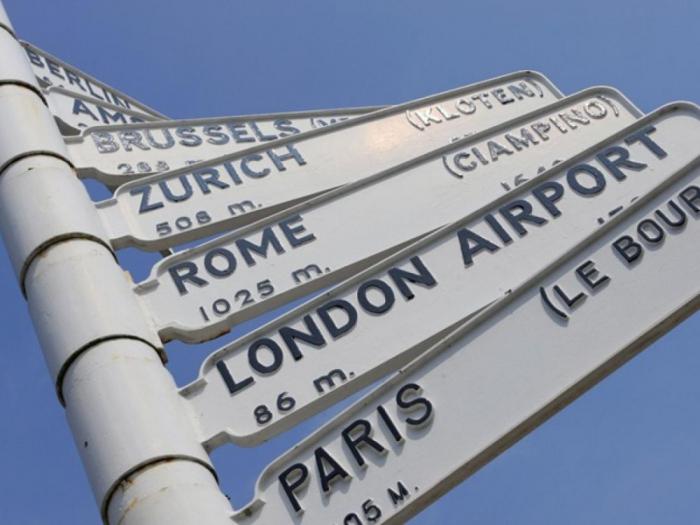The visa-free regime with Europe has been actively discussed in the Ukrainian media for the past three years and a little less actively for the previous ten.
If you dig deeper, it turns out that not all participants in the discussions understand the goal: why do we need a visa-free regime and that we will be given open borders with Europe.
According to the Kyiv International Institute of Sociology, 77% of Ukrainians have not been abroad and only 17% have traveled anywhere except Russia, Turkey and Egypt. Using the figures of the State Center for Statistics on the population in December 2016, we see that 17% is a little more than 7 million people. And this is not even for a year, but for the whole time.
In the course of market research, I realized that approximately 80% of Ukrainian tourists choose ready-made tours from agencies. According to my calculations, up to half a million of our fellow citizens travel abroad on their own, this is the maximum. And it is for them, first of all, that visa requirements are a certain barrier in visiting European countries.
To understand whether Ukrainians will travel more under a visa-free regime with the EU, it is worth looking in two directions. It is necessary to separately evaluate what will give visa-free regime those who are already traveling now, and then it is worth considering the benefits of visa-free travel for the rest of Ukrainians - those who are not interested in tourism or cannot afford to travel abroad.
Why Ukrainians don't travel much
The main problem of Ukrainian travelers is not visas, but the cost of the flight. I work in the travel segment and travel myself about 200 days a year, so I know that it is quite possible to get any visa. There are exceptions, but this is not Schengen at all.
To obtain a Schengen visa, it is usually enough that a person clearly explains the purpose of the trip, proves financial solvency and provides at least some guarantees that he will return to Ukraine.
With the prices of air tickets, everything is much more complicated. If we talk about short trips - up to 7 days - with a limited budget, air travel may well be the main item of expenditure, especially if tickets are issued urgently. So it is not so much the visa-free regime that will help Ukrainians to travel, but the "open skies" agreement, which is promised to us almost as actively as the visa-free regime. Joint aviation space with the European Union will allow European low-cost airlines, for example, to enter the Ukrainian market, which will reduce the cost of travel and open up new destinations.
Of course, if we are talking about traveling by car or other modes of transport, the situation looks different. Bus tours in Europe, for example, are available to many. And there is a chance that after the introduction without visa regime they will get new clients-travelers.
Will visa-free travel remove financial barriers
The myth that it is difficult for Ukrainians to obtain permission to enter the EU scares people more than the interview itself at the embassy, consulate or paperwork in visa application center. So, when the visa-free regime finally gets the green light, there will definitely be a category of travelers whose psychological "barriers" will break down. But financial circumstances are unlikely to change significantly.
The main stereotype regarding the visa-free regime is that the borders can be crossed without stopping at all, without any documents and confirmation of the purpose of the trip. In fact, this is not the case: the border guards will still have the right to ask you for an invitation from the host country, a hotel reservation, a return ticket or proof financial solvency. Each country has its own rules, but on average travelers should have money on the card or cash at the rate of $50 per person per day. Alternatively, you can show an invitation stating that the host party is responsible for the material costs.
The whole difference is that now such documents must be provided first at the embassy - to obtain a visa, and then - at the border, if asked. When the visa waiver agreement is signed, this will abolish the stage at the embassy. But such agreements do not oblige border guards to let Ukrainians into Europe without checks, including financial solvency checks.
The only item of expenditure that will really disappear is consular and other fees - about 55 euros - and other costs of issuing visas, for example, the cost of traveling to the embassy. It will be possible to delete these expenses from the budget, but add the cost of obtaining a biometric passport, which will be necessary for visa-free entry into the EU. It is issued for 600-1000 hryvnia, the exact price depends on the urgency.
What else you should not expect from the visa-free regime
The visa-free regime will not give Ukrainians the right to permanently reside in the EU countries, the permit will be valid for 90 days out of every 180. And there is no way to bypass this restriction: leaving the EU for one or two days does not "reset" the counter. The 180-day period is counted from the last entry. For a longer stay in Europe, you will still need to draw up documents.
Yet the right to enter Europe does not mean the right to work there. Behind labor activity without special permission, the person is likely to be deported. And if there are many such violations, the decision on visa-free travel may be reviewed for the entire country. However, the residents of Bosnia and Herzegovina, who received a visa-free regime several years ago, developed a legal scheme for employment in the European Union: come to Europe, agree on a job, and then receive a work visa - on the basis of a contract or an invitation from the employer.
What the visa-free regime will really give to Ukrainians
Visa-free will not change the situation dramatically, but this does not mean that it is not needed. I think the removal of the psychological barrier will play a huge role. The need to go to the embassy and draw up documents sometimes makes people so uncomfortable that they refuse the very idea of traveling, in addition to visa-free destinations.
The visa-free regime will simplify travel, especially for those who have previously traveled abroad. Probably, some part of those who traveled with travel agencies will decide on independent trips. The total number of travelers will increase, but not significantly.
Now it is difficult to maintain official statistics on the number of Ukrainians who travel abroad, because the State Border Service records only the very fact of departure. In total for last year they counted almost 25 million Ukrainians traveling abroad, although in reality this is the number of border crossings. According to the State Statistics Service of Ukraine for 2016, the top three countries where our citizens go are Poland, the Russian Federation and Hungary. Does this mean that these countries are the most popular tourist destinations? It is unlikely that the figures are "winding up" the residents of the border areas, who cross the border several times a month, and some even a day.
If we do not take into account neighboring states, but look at the statistics for other countries, it becomes clear that Ukrainians really prefer tourism without visas or with simple registration: trips to Egypt, Turkey. There are two reasons: low level English and fear to plan a tour on your own. Not many people decide to organize a trip without the help of an agency: book tickets and a hotel room, resolve the issue of transfer, rent a car, resolve issues with food, entertainment. As a result, most Ukrainians who have the opportunity to travel go on the same tours - to Turkey or Egypt - where the whole holiday is like a "Groundhog Day". But there are many interesting destinations in Europe where you can go with almost the same budget, but few people are ready to discover them for themselves.
The visa-free regime definitely motivates Ukrainians to consider new travel scenarios, but this is not the only thing. " Open sky", a general increase in the standard of living, the active implementation of in English- these are the factors that are no less significant for the popularization of trips abroad. But I am sure that step by step we will ensure that Ukrainians will be able to travel without any barriers - on maps and in their heads.
The process of obtaining a visa-free regime for Ukraine is nearing completion. By all indications, Ukrainians can get the right to visa-free visits to Europe this year. Experts in the field of international relations, political scientists and government officials agree that this will happen in 2017.
Since the question of when Ukraine will receive a visa-free regime has not yet been finally resolved, we would like to remind you of its historical aspect. The issue was put on the agenda in 2008, during the reign of President Viktor Yushchenko. The current government of Ukraine began the process of promoting a visa-free regime immediately after coming to power in 2014. His successful decision is positioned as the main achievement of the European choice of the country.
It is expected that when Ukraine receives a visa-free regime, this will facilitate partnerships with Europeans in various fields of activity. Meanwhile, there are many critics in the country who argue that this issue of obtaining or not obtaining visas cannot play a decisive role for ordinary Ukrainians. Those of them who travel around the EU countries today do not really need the abolition of the visa regime, because they do not save money on the visa fee.
Thus, people's opinions are divided, but the process of obtaining a visa-free regime for citizens of Ukraine has already been launched and is in full swing. In the situation with Russia, everything is completely different. . In turn, but for now.
Implementation of the procedure
- At the end of April 2016, the European Commission submitted a legislative proposal to the European Parliament to introduce a visa-free regime for Ukrainians. The statement stated that all the necessary conditions for its entry by Kyiv were met.
In time, this procedure can last for 1 month. The decision must be taken by a simple majority of votes. On this occasion, experts note that if at least one country blocks the decision, Ukrainians will have to wait for new deadlines.
- In the event of a positive vote in the European Parliament, the decision will be published in its official gazette. This will be followed by procedural consultations of the working group on the issuance of visas, as well as the Committee of Permanent Representatives.
- After that, the final approval of the decision will be carried out by the Council of the EU at the ministerial level. The voting process at this stage is more complicated: 55% of the countries representing 65% of the EU population are required to vote in favor. When making this decision, 4 countries representing the remaining 35% have the right to veto. If the voting result is positive, the procedure will give another 20 days for the visa-free regime with the European Union to start working in a full-fledged format.
Presenting their official proposal, the European officials emphasized the need to resolve this issue as soon as possible, and Ukrainian President P. Poroshenko announced the possibility of starting a visa-free regime by the end of summer 2016. But so far there has been no progress on this issue.
Conditions and documents for a visa-free regime
What conditions must Ukrainians fulfill in order for the visa-free regime to become a reality?
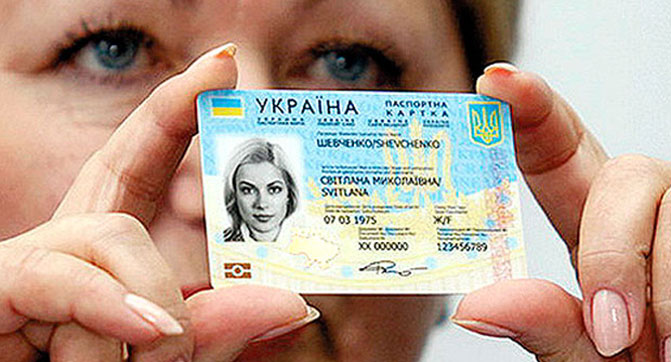
![]()
- host invitation;
- return tickets;
- hotel reservations;
- medical insurance;
- bank statements confirming the financial solvency of a person.
Current state of affairs
Experts called various terms for the introduction of a visa-free regime in the range from the end of July 2016 to the beginning of January 2017. At the same time, 12 countries were in favor of the regime for the immediate abolition of visa restrictions for Ukrainians. These are close neighbors of Ukraine: Slovakia, Poland, Hungary, Czech Republic. They were joined by northern residents: Denmark, Iceland, Norway, Finland, Sweden and the Baltic Republics - Latvia, Lithuania and Estonia. In general, all experts, from political scientists to official representatives, called the real time when the visa-free regime will begin to operate - the beginning of autumn 2016, but their opinion was erroneous.
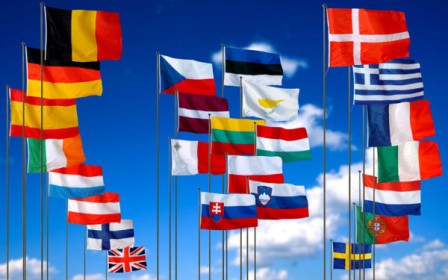
The latest news on the subject of a visa-free regime for Ukraine indicates that the process of its preparation is in full swing. The fact is that before a formal decision is made, there is a long preparatory process at the grassroots level. The date of the meeting of the Foreign Affairs Committee of the European Parliament is currently being discussed, and a rapporteur on this issue is being determined. It is expected that it will take place in late May - early June this year. After that, there will be plenary session European Parliament, where the final decision will be announced.
A similar progressive process will take place in the second case, when a vote will be held in the Council of the European Union. First, an expert commission will evaluate all the circumstances, then they will be discussed by the ambassadors of European countries, and only after that the ministers will make a final decision. As noted above, postponing or canceling the process of granting a visa-free regime for Ukraine after that will not be easy.
Only the four largest European countries have this right, but they are now demonstrating their readiness to provide all guarantees for the abolition of visas.
The only obstacle that can cancel the visa-free regime or delay it, experts call difficult situation with migrants in Europe. The migratory waves of Syrian refugees sweeping the European continent have complicated the state of affairs in matters of security and the fight against terrorism, employment and solving problems with.

As for Ukraine, its current status also contains a number of difficult moments.
- Firstly, military clashes in the Donbass continue in the country. Europeans have full foundation be wary of uncontrolled travel or weapons from the region.
- The second point may be issues related to internal instability in Ukraine. Although to date, European officials have announced that all the necessary requirements have been met by the Ukrainian authorities, discussions continue in the country about the fight against corruption, the level of which remains high, despite the measures taken.
- Thirdly, the situation in the European Union continues to be challenging given the debate over the preservation of European unity. Of course, first of all, this question concerns membership in the association of Great Britain and the assessment of new risks by the European Union.
At the same time, analysts argue that these factors can simply serve as a negative background during the final decision on the visa-free regime that Ukraine will receive.
On the blog, I shared a list of countries without visas for Ukraine and I want many European countries to add to this list too.
All the same, whatever one may say, but if a visa is not needed, this simplifies the travel process and reduces its budget.
Good news for those who are interested visa-free regime in the EU.
April 6, 2017 the European Parliament voted for the introduction of a visa-free regime between Ukraine and the EU.
And now more about what steps still need to be taken, what will and will not give a visa-free regime, as well as other useful things.
So, in today's post, I will share the following questions:
Visa-free travel to Europe for Ukraine: when and what countries

As I wrote at the beginning, on April 6, 2017, the European Parliament voted for the introduction of a visa-free regime between Ukraine and the EU.
Before the introduction of a visa-free regime between Ukraine and the EU, there is still two steps:
- The ambassadors of the EU countries must approve the decision of the European Parliament during a meeting to be held April 26, 2017.
- The final decision is made by the Council of the EU. The EU Council meeting on the Ukrainian issue is scheduled for May 11, 2017.
In case of a positive decision, it will begin to act on the 20th day, that is, in June 2017.
The visa-free regime will apply to 26 EU countries (except Ireland and the UK), as well as Iceland, Liechtenstein, Norway and Switzerland.
Visa-free regime in the EU for Ukraine: what are the conditions

If the decision on a visa-free regime in the EU for Ukraine is adopted, then it is important to pay attention to important conditions:
- Visa-free for Ukraine will operate within 90 days during every six months.
- Only holders can use the visa-free biometric passports. This is another plus of obtaining a biometric passport. And those who have a regular passport can apply for a second one - a biometric one. Let me remind you that Ukrainians can have two valid passports.
What the visa-free regime does not give for Ukrainians

It is important to understand that the visa-free regime in the EU for Ukraine is good for short-term trips - business, travel, visit friends or relatives.
To study, work or stay more than 90 days in EU countries - need a visa.
Slogan good, but not suitable for all tasks and trips.
Additional "buns" for travel with the adoption of a visa-free regime in the EU for Ukraine
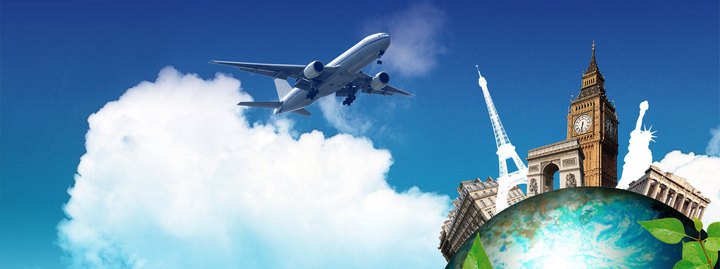
Getting visa-free in the EU is beneficial not only for traveling around Europe.
For additional "buns" I would attribute opportunity to save on flights to other countries.
I have already shared 2 features that I like in this search engine - there, just, there is an opportunity to search by countries of departure and arrival.
In principle, you can compare the directions you are interested in.
Sometimes it is cheaper to fly from another country, and in Europe there are more such offers.
![]()
If you are going on a trip to Ukraine or to other countries, I recommend that you look at the post
In the summer, June 11, the visa-free regime with the EU for Ukraine came into force. Ukrainians have been waiting for this event for a long time. And now everyone who wants to visit Europe in the near future should familiarize themselves with a number of changes that it entailed.
So, Ukraine and the EU: will the visa-free regime give Ukrainians new travel opportunities? Let's talk about this in more detail.
Visa-free regime of Ukraine with Europe: basic rules
Without visas does not mean without rules. Even the visa-free "Ukraine-EU" regime imposes certain restrictions on free movement.
The following restrictions can be distinguished:
- stay in the EU must not exceed 90 days in the last 180 days;
- employment, even short-term, is prohibited;
- the visa-free regime does not give the right to enter England and Ireland, because the territories of these states do not belong to the Schengen area.
Let us clarify that a visa-free regime for Ukraine with the EU means a simplified procedure for entering all Schengen states, even those not included in the EU. Thus, Ukrainians can visit Norway, Switzerland, Iceland, Liechtenstein, which are members of the Schengen and non-EU countries, without a visa.
If you doubt that your next trip complies with the 90/180 rule, then it is better to use the so-called "Schengen calculator". It can be found both on the website of the European Union and on many other online resources already with a translation into Ukrainian.


What documents are needed to travel without a visa?
What documents are needed for visa-free entry to the Schengen countries? How is this list different from the usual? Immediately, we note that the package of documents is smaller, and you do not need to go to the diplomatic mission with it for a visa, but only take it with you on the road.
Documents for "visa-free":
- biometric passport;
- return ticket (except for travel by private car);
- confirmation of the availability of housing (hotel reservation or invitation);
- medical insurance;
- confirmation of the purpose of the trip (invitation, guarantee certificate, ticket to an exhibition or concert, travel plan);
- confirmation of the availability of funds for the entire stay.
In principle, cash in the amount established for a particular country is sufficient to confirm financial solvency. For example, for Poland this amount is 100 zlotys (about 24 euros) per day, for the eurozone - an average of 45 euros / day.
If you do not want to cash out all the money, take a "Visa" or "Master Card" with a sufficient amount in the account, or request a letter of financial guarantee from the receiving party.
Infographic: Minimum amount per day to enter countries

Do you need a bank statement?
Officially, a bank statement is not needed to travel to countries with which Ukraine has a visa-free regime. Nevertheless, advice is often flashed on the network that it is better to take a bank statement, a certificate from the place of work / study, traveller's checks, and so on. In fact, no one requires such certificates from holders of biometric passports. Moreover, it is not so easy to get travel checks (payment document) in Ukraine.
Those who wish to play it safe can grab a check from an ATM, withdrawing a certain amount immediately before leaving. Or save an SMS notification on the phone informing about the last transaction, indicating the balance on the account.
What if you have a valid Schengen visa?
If you have previously opened a Schengen visa, you can travel on it until the expiration date, and in free time apply for a biometric passport.
How can a child travel without a visa?
The visa-free regime applies not only to adult citizens of Ukraine, but also to children. In order to make a trip, the child must have his own, separate from the parent, biometric passport.



You should also pay attention to the following features entry:
- Children under 12 are not fingerprinted. But this does not mean that the passport issued by him cannot be biometric. Biometrics is any document with a special chip. That is, a photo of a child recorded on a chip is enough to consider a biometric passport.
- From the age of 14, in order to receive biometric document you need to present an internal ID-passport. Without it, a biometric passport is not issued.
- Persons under 16 years of age are given a passport for 4 years. Starting from the age of 16, a passport is issued for 10 years.
- The outdated system, in which a photo of a child was pasted into the parents' passport, is a thing of the past. Now any request for travel documents for minors involves the issuance of a passport. From April 2018, children will not be able to leave the country on parental passports. Up to this point, children aged 5 to 12 can be transported using pasted photos.
- If the child is traveling with only one parent, then the second must give permission to leave. If the child travels without parents, both parents must sign the permit. This rule remains the same under the visa-free regime.
Visa-free regime with the EU: can you be denied entry?
Even citizens with a biometric passport may be denied entry to a particular country. If you don't have all required documents, you will not be able to continue your journey, despite the visa-free regime for Ukrainians to Europe.
The main reason for the refusal of entry on a "visa-free" basis is the lack of documentary evidence confirming the purpose of the trip and the intention to return. Persons who traveled through the cordon without a return ticket, hotel reservation, invitation, or who could not clearly explain why they were going to Europe, were forced to return home.
In addition, there are a number of reasons why Ukrainians may be denied the opportunity to use the visa-free regime.
Reasons for denied entry:
- missing one or more documents;
- being on the list of persons who are denied entry;
- deportation from the EU;
- violation of the terms of stay in the EU;
- previous violations of the procedure for staying in the EU;
- outstanding conviction from 1 year;
- suspicion of a serious crime;
- recognition as potentially capable of a crime and threatening the security of the EU.
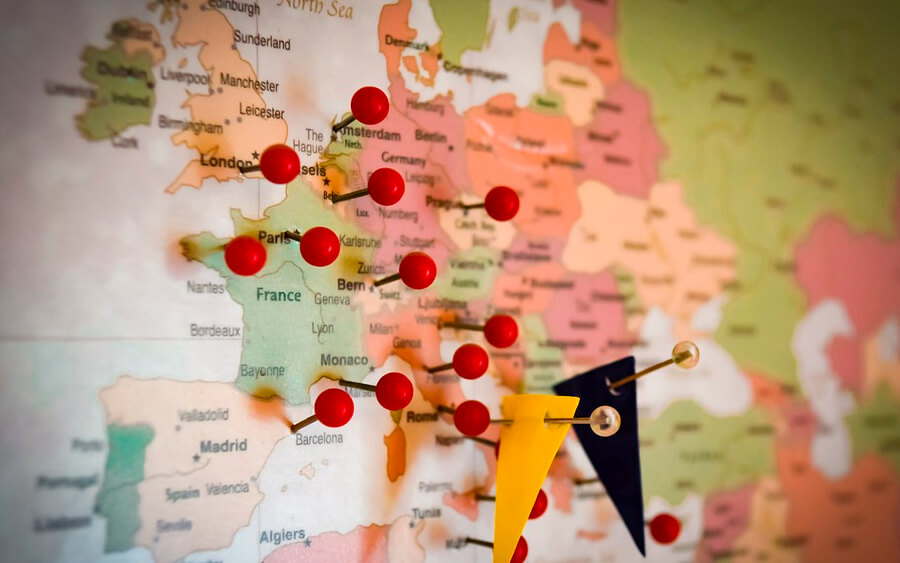


The last point is the most vague, as it is not described in sufficient detail. For example, news about a visa-free regime describes cases when Polish border guards refused entry to ATO participants.
A little tip for those who arrived in Poland on a flight from Ukraine: do not stand in line at the border control, where there are a lot of your male compatriots. They are very carefully and for a long time checked for participation in hostilities in the East. The check can be delayed, so the queue with a large number of men always moves more slowly.
Visa-free regime: how to prepare?
If you have been planning a trip abroad for a long time, but doubt that you will be able to understand the legislative nuances on your own, then you can always contact us! We will help and advise you on how to issue a biometric passport, correctly calculate the period of stay in the Schengen countries, put the "Schengen" in old passport etc.
When should you contact us:
- your passport is running out - you need a new one;
- the old passport is valid, but you also need a biometric one;
- you do not want to issue a biometric passport, but plan to travel to the Schengen area;
- if you need: Schengen visa in old passport; international passport for a child under 12, 14 or 16 years old;
- you plan to travel abroad with a child on your passport;
- A visa is required for a child who does not have a separate travel document.
Contact us - we will solve any issue related to a trip abroad. And you will see that the visa-free regime with the EU has a huge number of advantages!
Countries where Ukrainians can travel without a visa
Despite the visa-free regime, Ukrainian tourists can still use a document issued by the consulate of any Schengen country. It allows you to move around the entire Schengen area - European states (up to 90 days) without restrictions, as well as in some territories controlled by these countries.
| Austria |
So, it's done. One of the goals of the Maidan has been achieved. Rather, there are two steps left to it, but this is already a formality. Ukrainians will be able to travel to Europe this summer on a regular passport without worrying about stamping it. There will be no need to stand in lines at the consular departments and pay a fee of 35 euros. But it's not even about the money. Ukraine, as it were, became part of Europe. This is the meaning of the enthusiastic comments given by the top leaders of the state to the results of voting in the European Parliament. This is what President Poroshenko roughly said, rejoicing at the success. But do these words correspond to objective reality?
The main provisions of the official version
For quite some time, more three years, the people of Ukraine were told that the introduction of a visa-free regime would mark not only the beginning of the path to EU membership, but also the passage of a considerable part of it. This will help develop business contacts, increase the efficiency of the free trade area with the EU, now deepened and comprehensive. In addition, trust between the border services of the EU Member States and Ukraine will be significantly strengthened, as the exchange of operational information along with joint risk analysis will be faster.
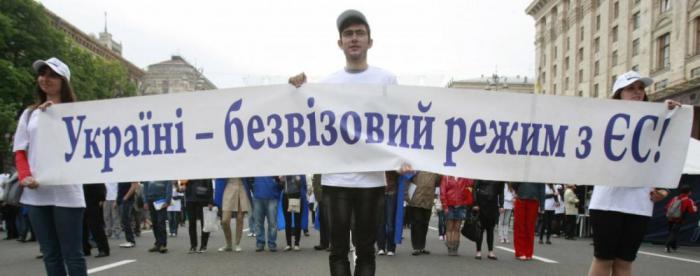
And how to forget about tourism, family ties citizens, business, scientific cooperation and intercultural dialogue? Virtually visa-free is almost like membership in the EU. It will allow Ukrainians to feel like real Europeans. Previously, only a select few could cross the western border, but now everyone! This is a historic event, after which another relative will appear in the fraternal family of peoples. Approximately in this vein, the prospects for a visa-free regime were commented on, and now the intensity of enthusiasm has reached its climax.

For which countries does the visa-free regime with the EU apply?
When the goal is achieved, the moment comes for an objective assessment of the result. The reality is that the visa-free regime has nothing to do with European prospects. It operates between the European Union and a good fifty states of the world. The last of them were Georgia and Moldova, but before that citizens got free access to the Schengen zone different countries, including the Dominican Republic, Grenada, St. Vincent, St. Lucia, Bosnia and Herzegovina, Macedonia, Argentina, Chile, Paraguay, Honduras, Guatemala, Panama, Nicaragua and beyond long list. Taking a globe or a political map of the world, everyone can be convinced that not all of these states are European, and their inhabitants do not always think about joining a certain “single family of peoples”. It's just that citizens of these countries can come to the EU, observing certain rules.
![]()
What is visa-free regime?
The meaning of the border crossing procedure is that citizens of some states have the right to cross the border of the European Union and stay on its territory for 90 days for every 180 days. In other words, approximately three months in half a year, not necessarily continuously, it is possible in parts, but in total no longer. If for some reason you need to stay, then a visa will have to be issued. This time can be used to visit relatives (if any), visit museums, galleries, theaters and other cultural institutions. If someone wants to satisfy their exquisite gastronomic passions, then this is also welcome. Interest in architecture and historical monuments is encouraged. In general, there are no restrictions in terms of tourism. But in general they are.
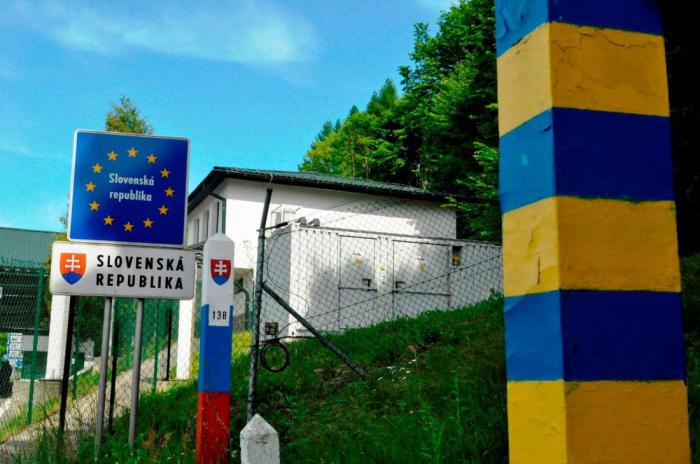
What can not be done if you arrive without a visa?
Restrictions apply to the right to work and other income-generating activities. Educational and research intentions, although they have been talked about a lot, are also not related to visa-free travel. Programs for undergraduate and graduate students exist, but entry into the EU countries is provided for through consular registration. As for businessmen, they can come to Europe on their business as much as they like (but the ninety-day rule also applies to them in this case), but it is difficult to imagine a reputable entrepreneur who does not have 35 euros for a visa. Any citizen of Ukraine who decides to get a job, having arrived within the framework of a visa-free regime, will be considered an illegal immigrant, he will be deported and put on a special list, after which he will be able to forget about visiting Europe for a very long time.
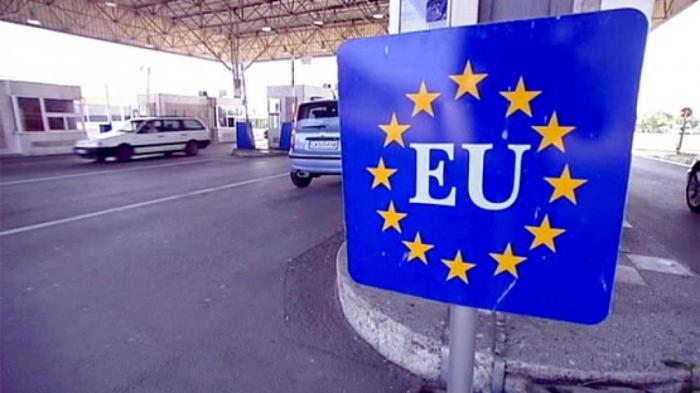
What is a "Schengen calculator"?
The time of stay of each foreigner in the European Union is calculated automatically. If someone thinks that he can, having arrived without a visa in the Schengen zone, "get lost in the crowd" and, having settled down on a quiet illegal job, live for years in the "Western Paradise", then he is greatly mistaken. After the expiration of the prescribed period, they will begin to look for him and, probably, they will find him. After that, the name of such a cunning, again, will be on the list of unwanted persons. He will not be able to travel to Europe for a long time both without a visa and with it. And if there are many such clever people, then, according to the established suspension mechanism, visa-free travel will be closed for all citizens of Ukraine.

Who was against?
Representatives of not all EU countries supported the introduction of a visa-free regime with Ukraine. Formally, Kyiv fulfilled the conditions set for it, and there were many of them, more than a hundred, but the quality... European deputies have reasonable fears about a possible increase in crime and large-scale illegal migration. Initially, France, Italy and Germany objected, but you don’t need to mention the Netherlands, it came to a referendum there. Paris is currently considered the most active adversary, and if there are any delays in the implementation of the last procedures, then the reasons for them can be sought in this European capital.
Can they just take it and not let it go?
As such, “face control” is not practiced at the border of the European Union, and if an agreement has been concluded with some country on visa-free entry, in the vast majority of cases it is observed. That is, bureaucratic arbitrariness in the form of an unreasonable refusal can not be feared. Another thing is if there are any reasons for it. These may include:
Lack of a return ticket with the corresponding "Schengen calculator" date of departure.
Uncertain answer to the question about the purpose of the trip.
Suspicious contents of hand luggage.
Being in the "black list" violators of the visa-free regime.
Uncertainty of residence in the country of arrival.
Lack of the required amount of money.
Other legal grounds for refusal.
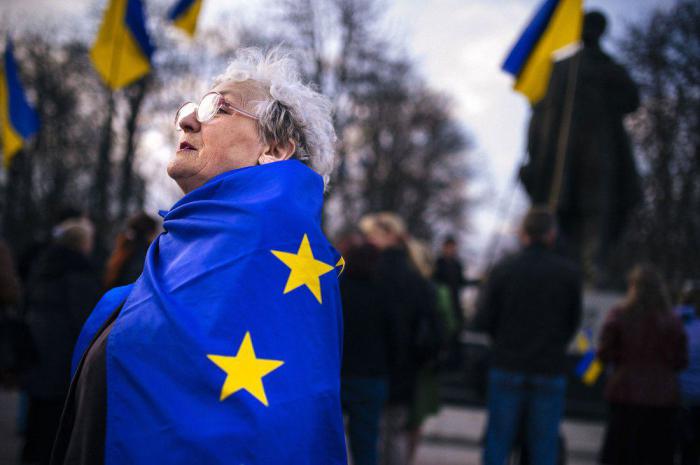
Where can you go?
An agreement on a visa-free regime has been signed with 26 countries belonging to the Schengen area. In addition, Cyprus, Croatia, Romania and Bulgaria will let Ukrainians in, as these states claim to be part of the Schengen club. Switzerland, which is not a member of the EU, but is ready to support a collective decision after its final approval, has a special position.

Attitude to the joyful event of ordinary citizens
As shown by a survey conducted by the "hot" channel News One, only 10-15% of respondents were enthusiastic about the possible introduction of a visa-free regime in the near future (summer). Not all of them are probably preparing for exciting trips, and someone may be happy for other, more fortunate fellow citizens or proud of the achievements of their native country due to the high level national consciousness. Those who could actually travel to the EU before have objectively become fewer, which is mainly due to the difficult economic situation. All the rest show indifference or, in other words, complete indifference. The revealed attitude is fully consistent with the mood of Moldovan citizens, who for the most part do not believe that the introduction of a visa-free regime has improved their lives.

